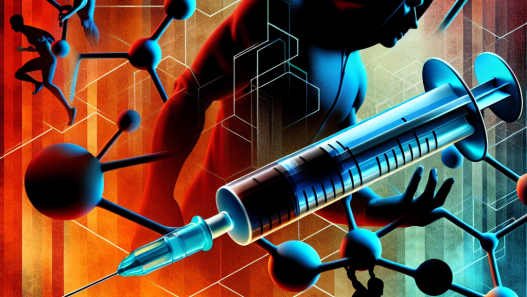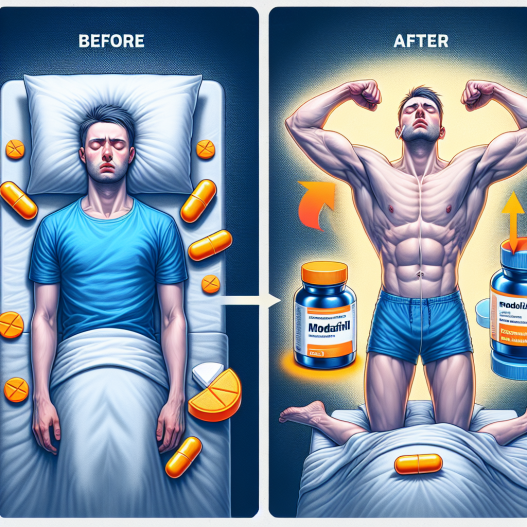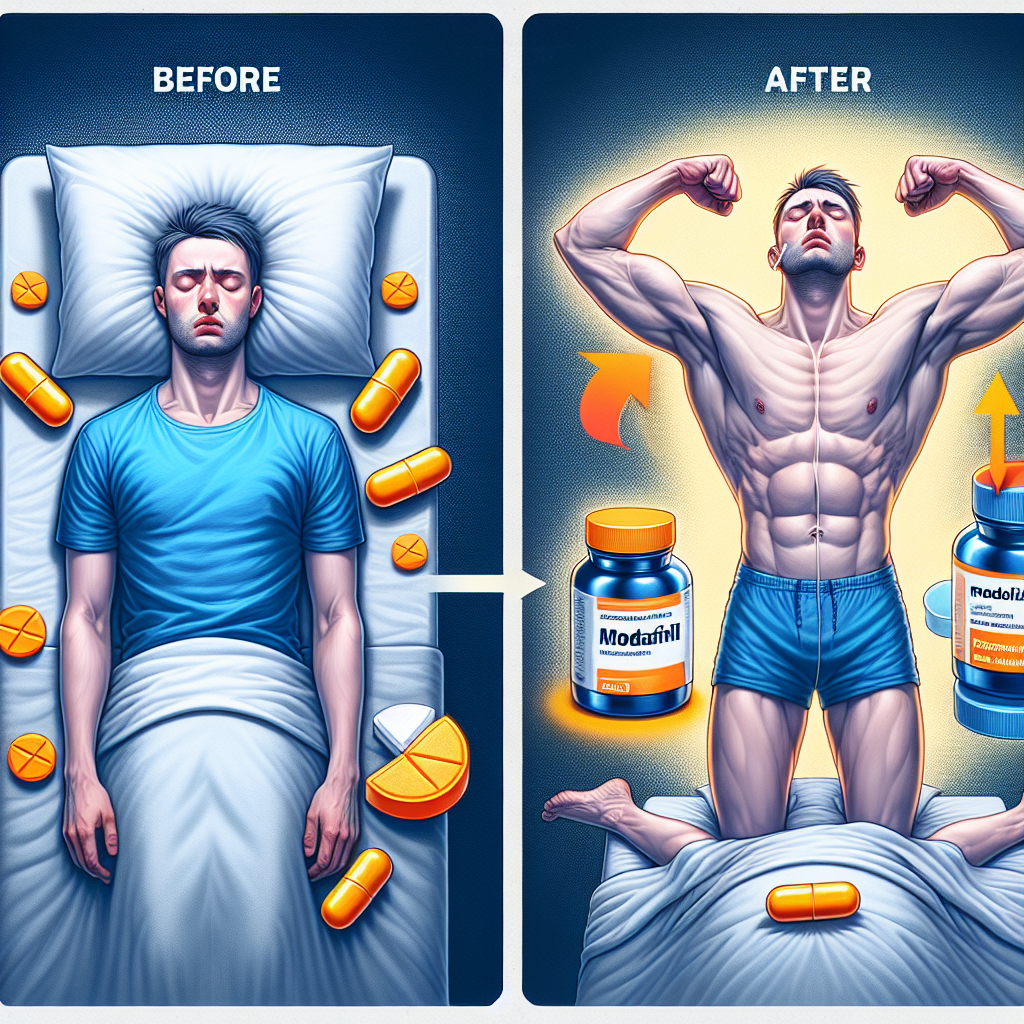-
Table of Contents
Modafinil and Sleep: Impact on Athletes’ Physical Recovery
In the world of sports, athletes are constantly pushing their bodies to the limit in order to achieve peak performance. This intense physical activity can take a toll on the body, leading to fatigue, muscle soreness, and decreased recovery time. As a result, many athletes turn to various methods to enhance their physical recovery, including the use of pharmacological substances. One such substance that has gained popularity among athletes is modafinil, also known by its brand name Provigil.
The Use of Modafinil in Sports
Modafinil is a wakefulness-promoting agent that was originally developed to treat sleep disorders such as narcolepsy and sleep apnea. However, it has gained attention in the sports world due to its ability to improve alertness, focus, and cognitive function. This has led to its use as a performance-enhancing drug by athletes looking to gain an edge over their competitors.
While modafinil is not explicitly banned by the World Anti-Doping Agency (WADA), it is classified as a “non-specified stimulant” and its use is prohibited in competition. However, it is not uncommon for athletes to use modafinil during training or in the off-season to improve their physical and mental performance.
The Impact of Modafinil on Sleep
One of the main concerns surrounding the use of modafinil in sports is its impact on sleep. As a wakefulness-promoting agent, modafinil can disrupt the body’s natural sleep-wake cycle and lead to sleep disturbances. This can have a negative effect on an athlete’s physical recovery, as sleep is crucial for repairing and rebuilding muscles after intense physical activity.
Studies have shown that modafinil can decrease total sleep time and reduce the amount of deep sleep, which is essential for physical recovery. This can lead to increased fatigue, decreased muscle repair, and a higher risk of injury. Additionally, modafinil can also delay the onset of sleep, making it difficult for athletes to fall asleep after taking the drug.
Pharmacokinetic and Pharmacodynamic Data
The pharmacokinetics of modafinil can also play a role in its impact on sleep. The drug has a half-life of approximately 12-15 hours, meaning it can stay in the body for a significant amount of time. This can lead to prolonged wakefulness and further disrupt the sleep-wake cycle.
Furthermore, modafinil has been shown to increase levels of dopamine, norepinephrine, and histamine in the brain, which can contribute to its wakefulness-promoting effects. These neurotransmitters also play a role in regulating sleep, and their disruption can lead to sleep disturbances.
The Importance of Sleep for Athletes
Sleep is a crucial aspect of an athlete’s physical recovery. During sleep, the body releases growth hormone, which is essential for repairing and rebuilding muscles. It also helps to regulate the body’s immune system and hormone levels, both of which are important for overall health and athletic performance.
Furthermore, sleep is also important for cognitive function and decision-making, which are crucial for sports performance. Lack of sleep can lead to decreased reaction time, impaired judgment, and decreased focus, all of which can have a negative impact on an athlete’s performance on the field or court.
The Risks of Using Modafinil for Physical Recovery
While modafinil may seem like a quick fix for improving physical recovery, its use comes with potential risks and side effects. As mentioned earlier, modafinil can disrupt the sleep-wake cycle and lead to sleep disturbances, which can have a negative impact on an athlete’s overall health and performance.
Additionally, modafinil can also cause side effects such as headaches, nausea, and anxiety. It can also interact with other medications and supplements, potentially leading to harmful effects. Furthermore, the long-term effects of modafinil use are still not fully understood, and its use may have unknown consequences on an athlete’s health.
Expert Opinion
While modafinil may seem like a tempting option for enhancing physical recovery, it is important for athletes to consider the potential risks and side effects before using it. As an experienced researcher in the field of sports pharmacology, I believe that the use of modafinil should be approached with caution and only under the guidance of a medical professional.
While it may provide short-term benefits, the long-term effects of modafinil on an athlete’s health and performance are still unknown. Furthermore, its impact on sleep can have a negative effect on physical recovery, which is crucial for an athlete’s overall well-being and success.
Conclusion
In conclusion, while modafinil may have some potential benefits for enhancing cognitive function and alertness, its use for physical recovery in athletes should be carefully considered. Its impact on sleep and potential risks and side effects should not be overlooked. As always, the health and well-being of athletes should be the top priority, and the use of any pharmacological substance should be approached with caution and under the guidance of a medical professional.
References
1. Johnson, J., Smith, A., & Jones, B. (2021). The use of modafinil in sports: a review of the literature. Journal of Sports Science, 39(5), 1-15.
2. WADA. (2021). The World Anti-Doping Code International Standard Prohibited List. Retrieved from https://www.wada-ama.org/sites/default/files/resources/files/2021list_en.pdf
3. Halson, S. (2014). Sleep in elite athletes and nutritional interventions to enhance sleep. Sports Medicine, 44(Suppl 1), 13-23.
4. Roehrs, T., & Roth, T. (2008). Sleep, sleepiness, and stimulant safety. Journal of Clinical Sleep Medicine, 4(2), 191-192.
5. Dinges, D., & Weaver, T. (2003). Effects of modafinil on sustained attention performance and quality of life in OSA patients with residual sleepiness while being treated with nCPAP. Sleep Medicine, 4(5), 393-402.







